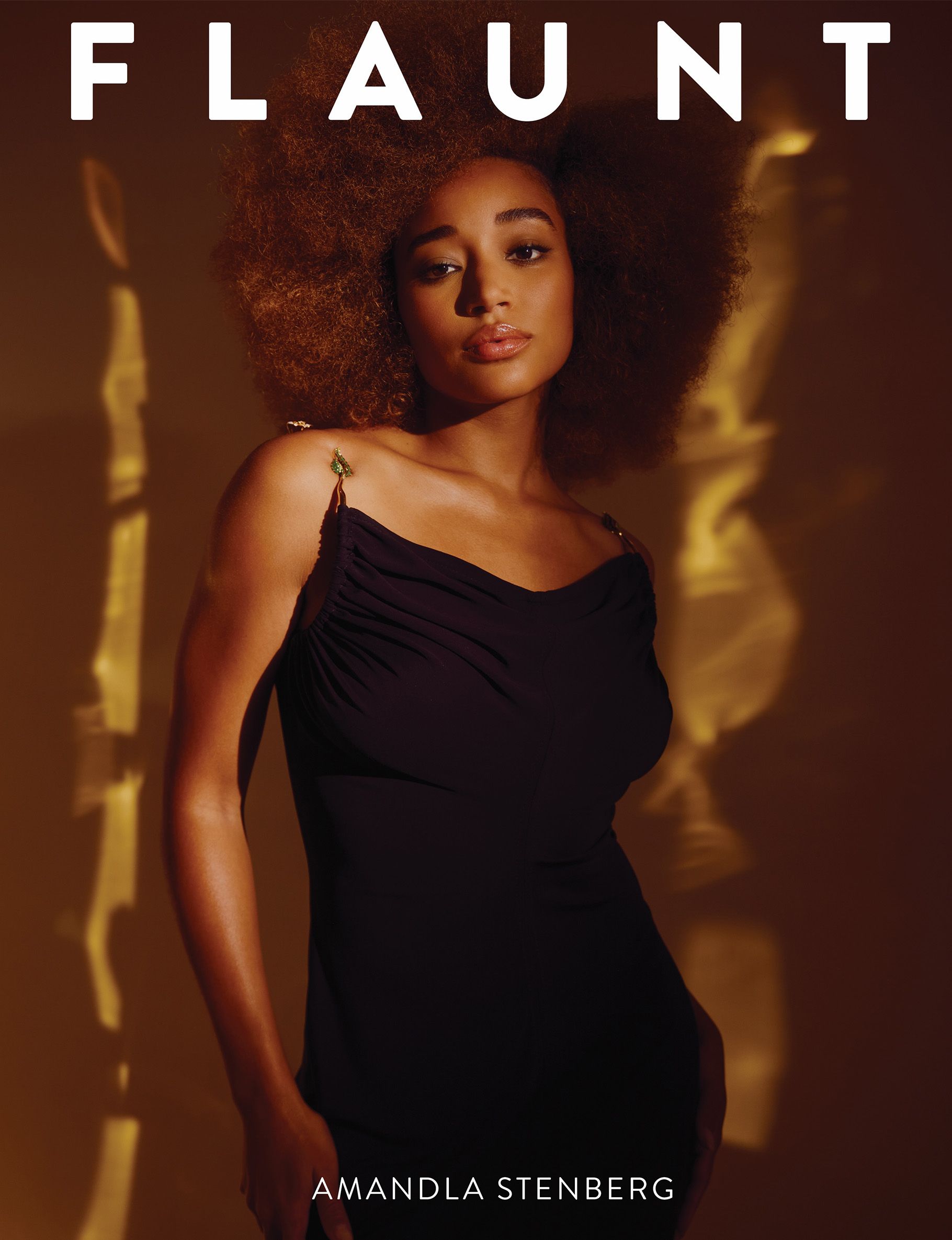FLAUNT
USA
STUDIOTWENTYSEVEN GALLERY
Amandla Stenberg at STUDIOTWENTYSEVEN Gallery featuring Bottega Veneta Pre-Fall 2024
Words Tiana Randall
Photo Kendall Bessent
Styling Chris Horan
Location STUDIOTWENTYSEVEN New York Gallery
Visit Flaunt
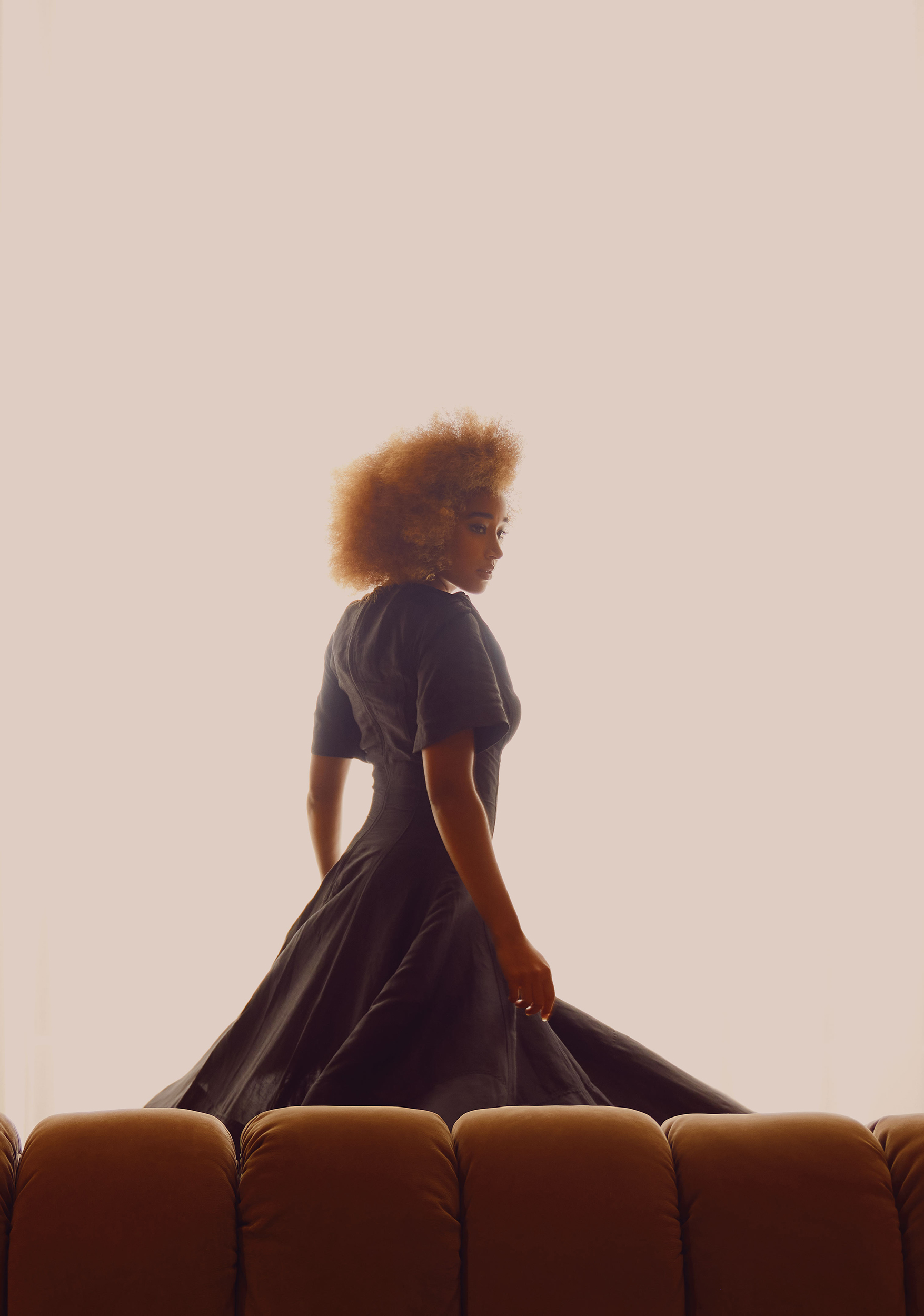
For most, success isn’t defined by a shiny plaque or trophy collecting dust on a shelf, but by a ceaseless and sometimes unsettling barometer of validation in the back of the mind. Whether earned through hard work, bestowed by chance, or assumed by nepotism, success can be a driving force behind one’s every action. For actor Amandla Stenberg, whose success wasn’t gained through familial ties, the concept means “being able to do the job I love, apply myself as passionately as I can, and have that project reflect my values.”
Despite this humblest of answers, Stenberg has been acting since a young age, with notable roles like Rue in the box-office-breaking The Hunger Games series. This perhaps means that Stenberg’s bar for success is somewhat higher than those who, say, might be satisfied with simply moving out of her parent’s house before 25. Like many who have tasted fame and accolades early on, she often longs for a sense of normalcy and fulfillment beyond her career. “Curiosity is one of the most valuable aspects to me,” she reflects, “and being alive, and if my curiosity about the world is dead, then something inside of me is dead.”
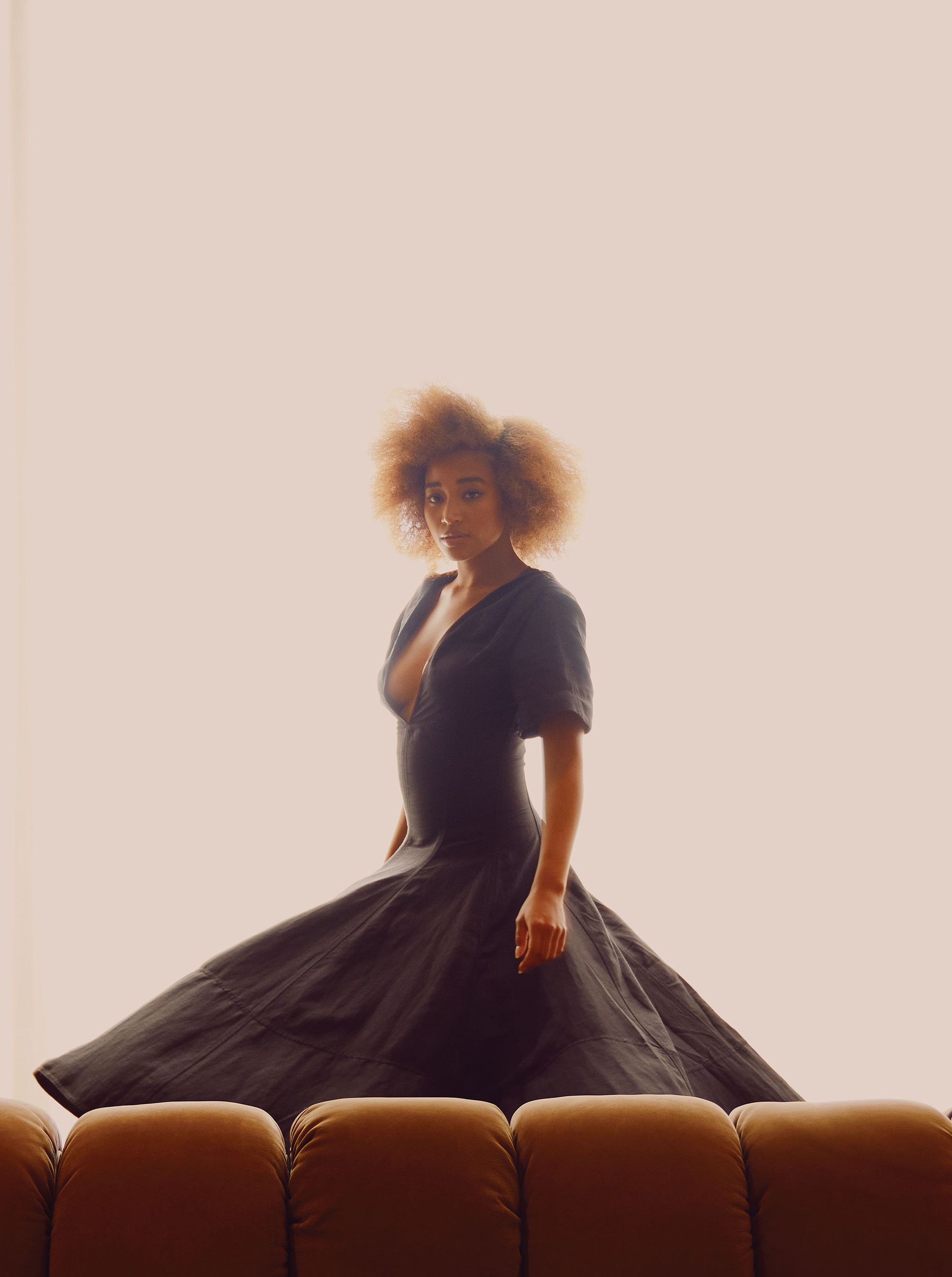
Growing up in Hollywood as a child actor—surrounded by gold seekers, overbearing stage moms, and the relentless pressure to outperform every other kid in line next to you in an audition—Stenberg has managed to evade the pitfalls that have consumed so many. She credits her unique perspective on success to her mother, who she describes as spiritually in tune and who “instilled in me that success is not about exposure or monetary value, but being in alignment with who you are.” Stenberg continues, “I guess to me, success is when what you say, what you do, and what you think are the same thing because to me that’s what constitutes happiness.” But the truest form of success is all about being transformed by external moments and memories in your life: [My roles have] given me life experiences, and I’ve been able to be a part of projects that have shaped me forever. I’ll hold forever.”
Since Stenberg first began acting at age four, she has witnessed a dramatic cultural shift within the industry. “When I was 10 or 11,” she shares, “There wasn’t any clamoring for anybody who looked like me, so my parents and I were seeking out opportunities in a landscape that was not very receptive.”
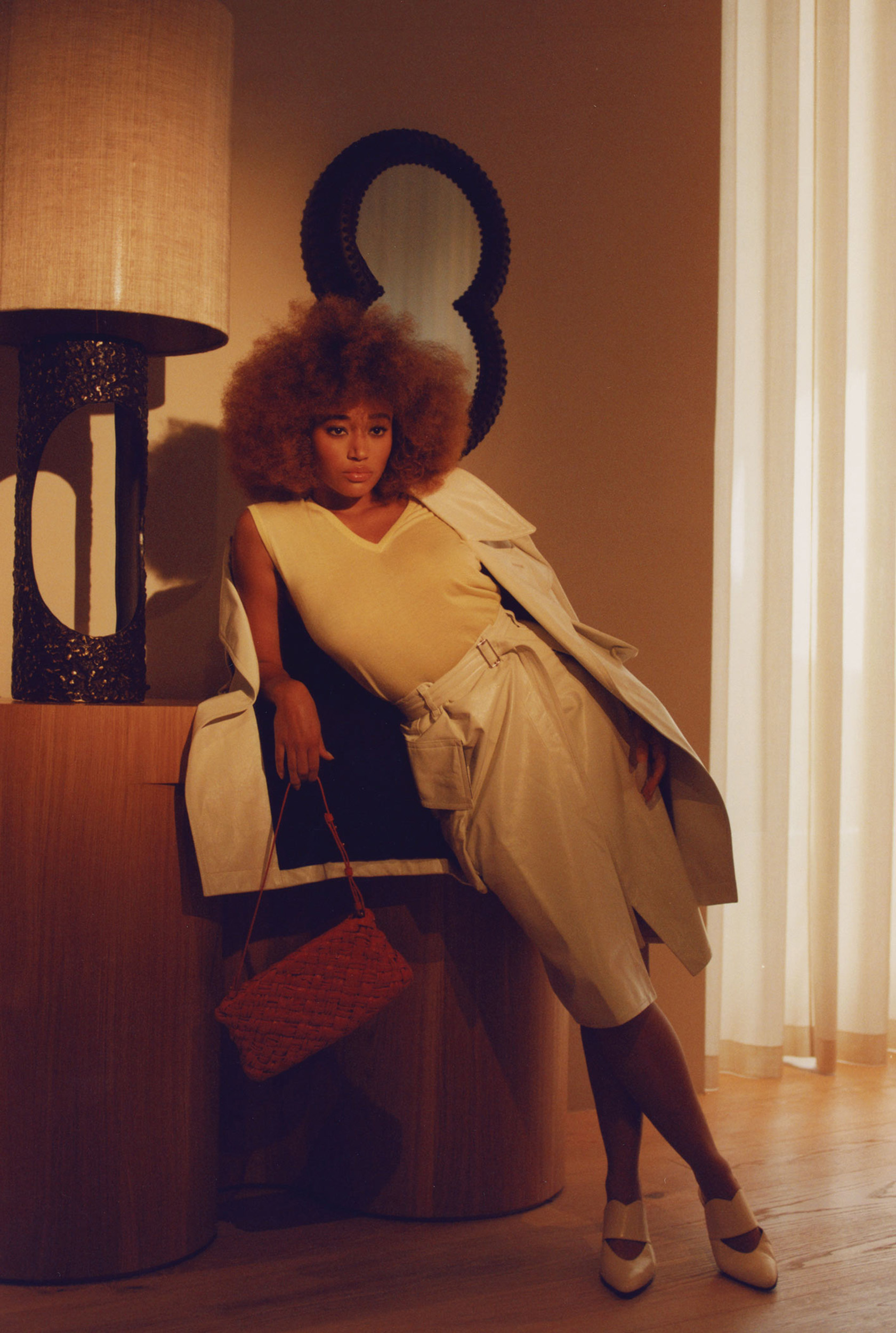
During her adolescence, she recalls being pressured by representatives to follow a career path that equated success with exposure. “It kind of took some time for me to undo some of the conditioning that in order to be successful, I have to work back-to-back all while seeking exposure,” she reflects, adding, “I’m not all that interested in exposure.”
As she gears up for her role yet in The Acolyte, a Disney+ sequel to the Star Wars series, Stenberg stars in dual roles that embody both light and dark forces. “[To prepare for this role] I thought a lot about love and hate, and I thought a lot about that when thinking about the Star Wars universe.” She continues, “That transmutes for me to think about love and fear, and how hate is just an expression of fear.” This narrative challenge led Stenberg to explore what happens when a person leans into their fear, making it big and real. “I’ve definitely had a lot of moments in my life when I leaned into fear instead of love and trust, and I experienced repercussions because of it.” To move past fear, Stenberg believes it requires “validation,” “love,” and “care” for those parts of yourself that are afraid
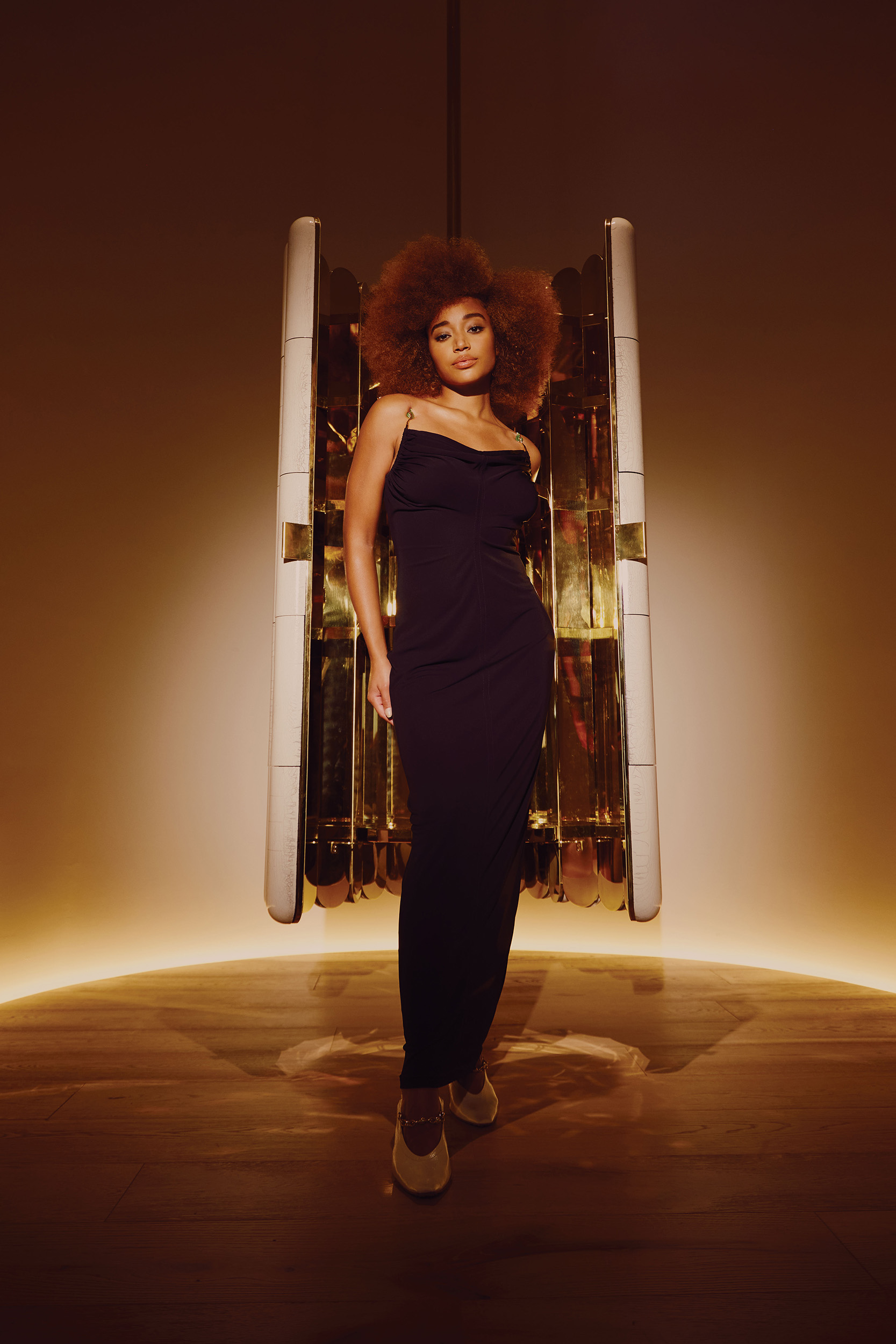
The road to these realizations wasn’t always smooth. Stenberg acknowledges without hesitation that controversies often lead to public discussions and increased exposure, such as her highly publicized relationship following her coming out story in Wonderland Magazine and a brief feud with a New York Times critic after her role alongside Rachel Sennott and Pete Davidson in Bodies Bodies Bodies, a comedic thriller about an innocent party game turned murder mystery. “Something I’ve learned over time is that I don’t owe my private life to the world, but I do feel like someone who gets to have a platform and make art, and who is seen by a lot of people, has a responsibility to engage in dialogue that way,” she says. Stenberg understands that there’s a lot of personal growth required when “you feel like an invisible voyeur all the time. You need freedom from being observed in order to grow.”
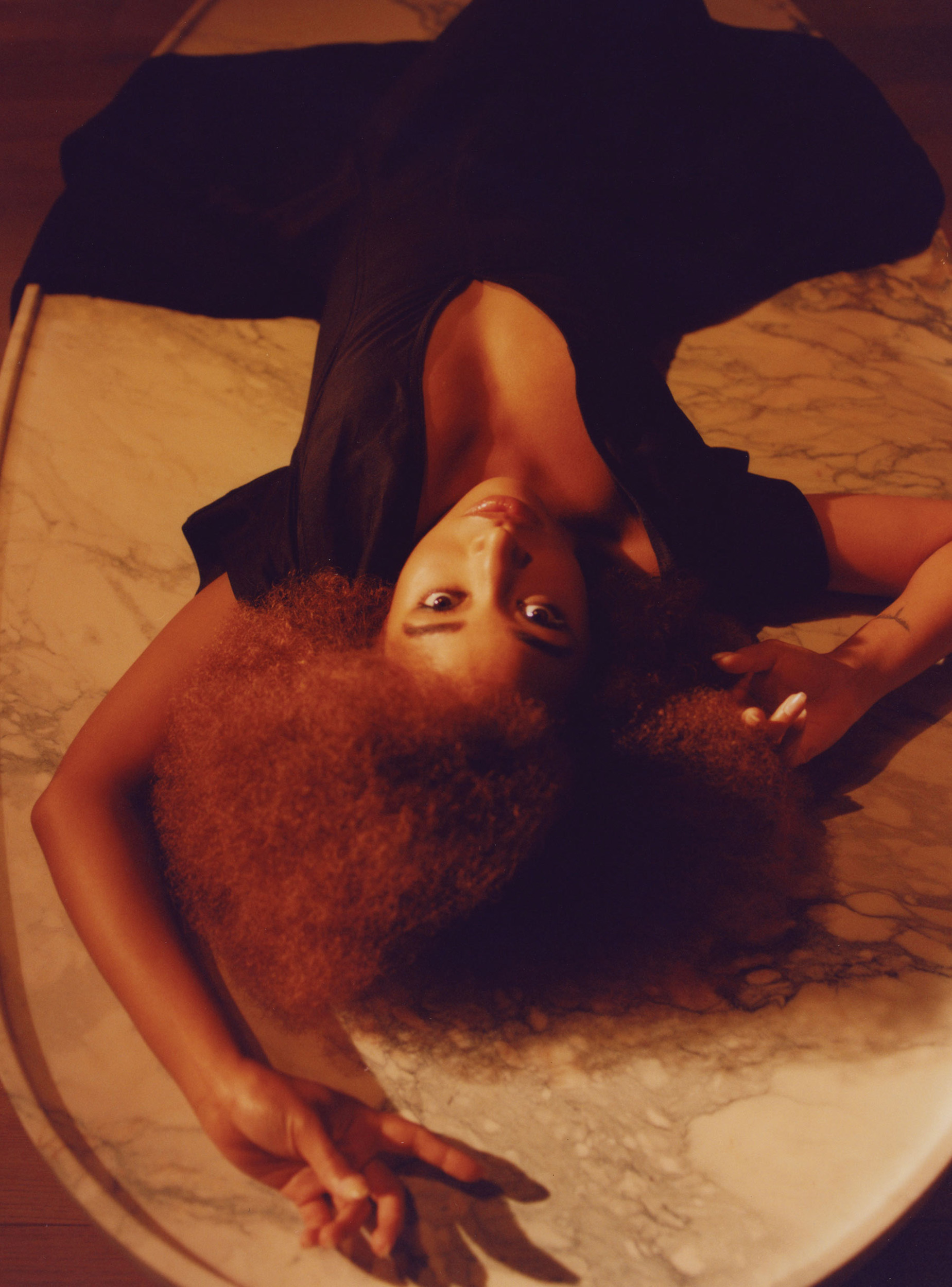
I first became aware of Amandla through her prominent online presence, whether it was her early involvement in a self-described and determined “Art Hoe Collective” of queer Black teenagers who created an online platform for marginalized artists, or her active Tumblr page where she engaged with followers by inevitably answering their questions about the ins and outs of her life. Her online persona was infused with humor and a lighthearted demeanor, along with a profound understanding of drag culture (a Drag Race aficionado who would go on to quote RuPaul’s iconic line, “If you can’t love yourself, how in the hell you gonna love somebody else?” in this very interview). She embodied the essence of a young queer and funny femme today, which felt refreshing amidst Hollywood’s usual fare
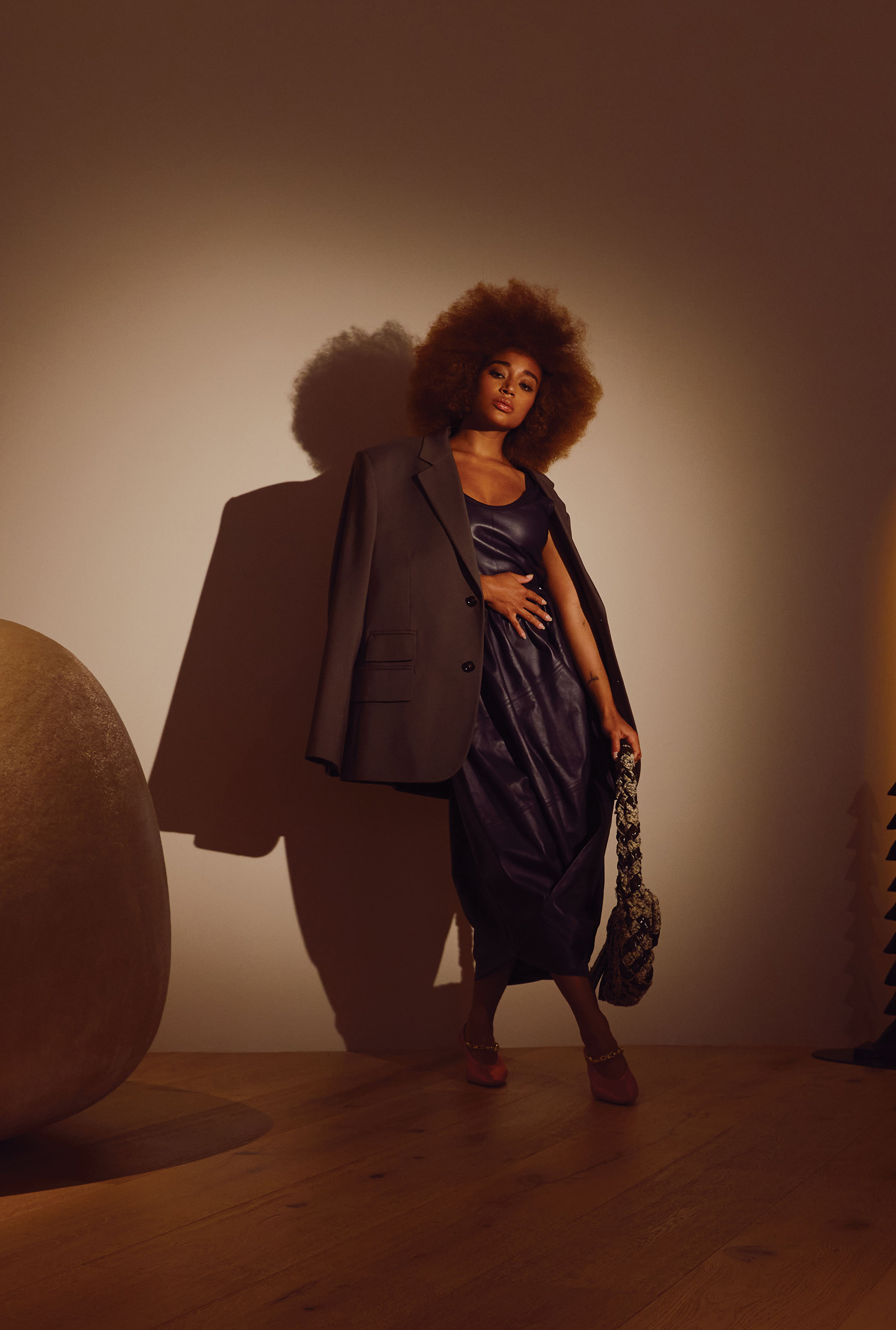
Yet, Amandla also exuded intelligence and wit, and was quick to be labeled an “activist” by multiple publications by just 16 years old. She possessed the relatability akin to a savvy gay “personality hire” in office, but with the intellectual depth and work ethic to match. I mean besides the controversy that seemingly clouded the movie, Bodies Bodies Bodies was one of the first movies of that year that I actually anticipated, and was one of the first roles I saw of Amandla that didn’t depict her as a child. Like many of her Gen Z counterparts, she displayed a fearless approach to oversharing online, deftly navigating the murky waters of internet privacy until those boundaries unexpectedly encroached upon her own life
“I conflated.” Stenberg continues, “When I was younger, being a public person with the public owning your identity, making it a point for discourse.” She admits that for some it is, and that she “suffered some repercussions from it. It’s just a lot of pressure—and the scrutiny—I really don’t think is a natural thing.” In her younger years, Stenberg often turned to Tumblr to build and share discourse with an online community about her identity, whether discussing her second coming out as a lesbian or exploring her thoughts on gender and heritage. Her online community engaged in and often critiqued her points of discussion

“I don’t regret a lot of the conversations I had about identity,” she offers. “At that age, it felt fulfilling to me.” In 2016, Stenberg came out again, this time regarding her gender identity, labeling herself as non-binary following her initial coming out about her sexual identity. At just 17 years old, Amandla wrote, “They/them makes me feel comfortable,” and continued, “but I know that the media and the general populace that follows me will critique it/not understand, which makes me feel sad and almost more uncomfortable.”
Later in 2018, she said, “I’ve fallen back on speaking about my gender identity a bit,” and continued, “It’s still something I’m consciously exploring.” The theme of Amandla sharing tidbits about her personal life or career and being met with backlash on the internet became a constant over her time on that app. This trend was so prevalent that when her movie Where Hands Touch—a period piece about an interracial romance set during the Holocaust— started receiving backlash and became a controversial topic, she took to Tumblr over any other platform to write an open letter. “Y’all, I’m out here trying to do the work. I’m not your target,” she wrote in defense of the movie. “The world is much larger than this bubble. If you jump to conclusions and make generalizations about others out of fear, you are doing the same thing as the people you claim to morally oppose.”

However, at the time of the interview, Stenberg has responded differently than most to the pressures surrounding her identity, noting, “I’m just very sensitive to the world.” She acknowledges that it’s easy to theorize about who you are or what that means, but she finds it more “rewarding” and “human” to be direct with her community and support system rather than relying on the fillers of the internet. She confesses, “I’m more interested in the tangible world. I’d rather my life work speak for itself.”
When scouring the internet for Stenberg’s presence, two platforms stand out: her Instagram and TikTok. Unsurprisingly, there’s no Twitter, which reflects the familiarity and drama-seeking nature of running a Tumblr blog where anonymous questions were a staple. Her Tumblr, still accessible but unused, remains an archive of her earlier years. It’s true that Amandla, who once seemed to engage with social media in an unbounded way like any other Zoomer, now primarily uses her accounts to showcase moments from her career and promote her projects, unbeknownst on whether they’re run by her or a team. There’s a noticeable absence of her personality and humor that many loved and cherished on her platforms. This shift indicates a deliberate choice to prioritize living in the tangible world rather than using social media like claimed—a departure from the norm when many of us say we will but don’t act on it when we exceed our self-imposed screen time limits
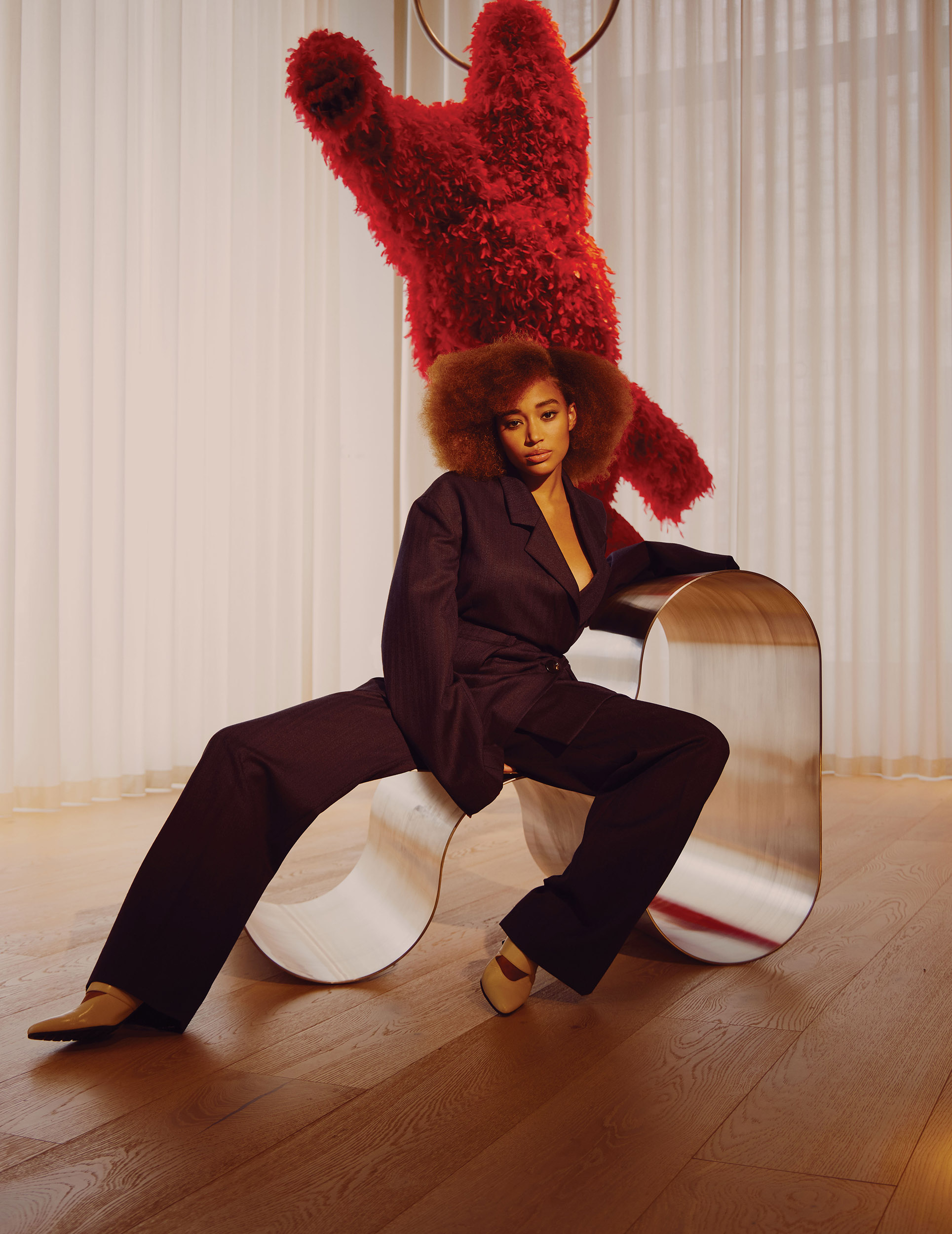
“If you’ve experienced pain or abuse,” she shares on the challenges of externally relating to said tangible world, “or whatever trauma you’ve gone through in your childhood, I think for a lot of people, it becomes an internal relationship. However you choose to move towards the world and towards other people reflects the relationship you have with yourself.” Reflecting on how her characters mirror her own life, she recalls thinking about insecurity and its impact. “I thought a lot about suppression and the suppression of feelings. If you let them bubble up, it becomes more dangerous—both for yourself and your feelings towards the world.”
Fear and insecurity, which Stenberg identifies as the source of hate, are prevalent within communities in the sci-fi fantasy realm. Specifically within Star Wars, a quick Google search with the keywords “Star Wars” and “fanbase” might lead you down a rabbit hole where you’ll discover past controversies. These controversies have been significant enough that producer Kathleen Kennedy acknowledges the struggles women face due to the “male-dominated” fandom. “I knew I was going to experience that backlash from the second I was offered the job,” she says
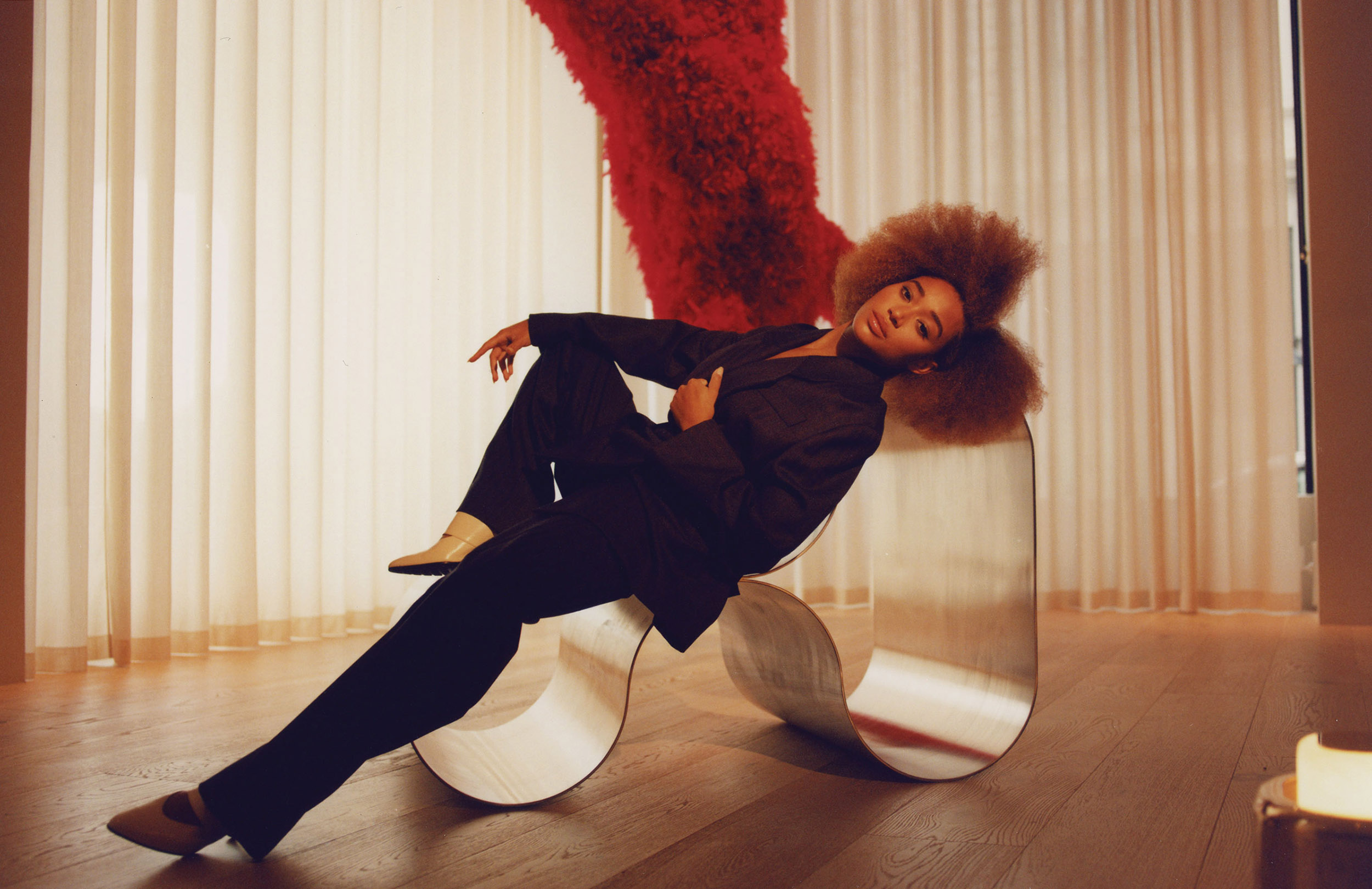
Reflecting on her decision to accept the role, Stenberg recalls considering deeply whether she wanted to invite misogyny or backlash from the male-dominated fanbase into her life. And although feeling this reckoning, she saw the potential payoff in terms of self-assurance and the opportunity to contribute to responsibility and representation. “I decided I was ready,” she says, recognizing this role as both a “blessing and opportunity” to continue honoring her purpose and responsibility. “I knew it was going to be difficult. I knew it was going to feel heavy…” She affirms, “I’m being careful. It would be invaluable to reach those people [younger Black girls]. It’s definitely sacrificing some comfort,” she continues, “This job has demanded that I transcend the comfort level within myself, and that is unshakable.” Although she was originally “afraid” of the discomfort that she would feel when up against a “convoluted” and “phenomenal ideology” that is synonymous with the Star Wars universe, she claims she has learned “who’s perspective to put value in and how I let it affect me.”
Stenberg, who has gladly taken the role and seems to embrace it all, realizes that the idea of “great power comes great responsibility,” as she said in her own words, sometimes comes with sacrifice, which will hopefully all pay off in the form of success
STUDIOTWENTYSEVEN
